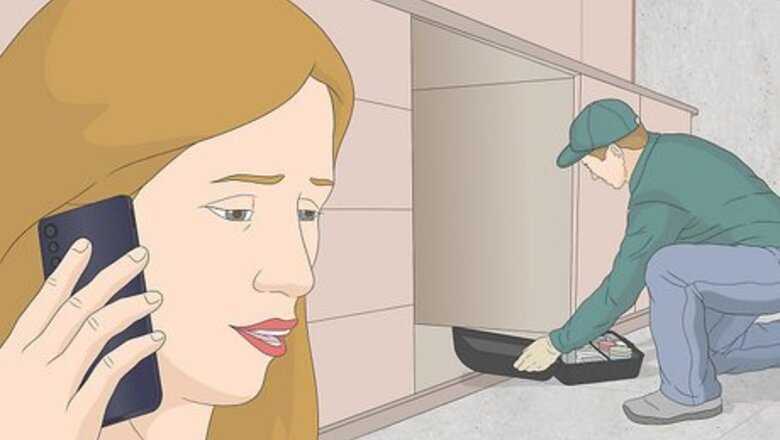
views
- Call an exterminator for mice as soon as you spot the signs of an infestation.
- You might have a mouse infestation if you notice mouse droppings or hear scratching sounds inside your walls.
- To get rid of mice fast, set up snap traps and seal your entryways with caulk. Put away food and clean up clutter to discourage mice from entering your home.
When should you call an exterminator for mice?
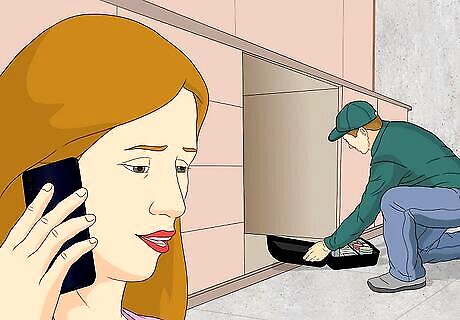
Call an exterminator as soon as you notice any signs of an infestation. When you see 1 mouse or signs of mice in your home, there’s a good chance that there are a lot more mice you just can’t see. As soon as you think you have mice on your property, contact a professional exterminator to come out and take a look. They can inspect your home and guide you on the best way to get rid of the mice on your property. Don’t hesitate to call in a professional. Mice breed very quickly, and the larger the infestation gets, the more expensive an exterminator will be. The cost of an exterminator depends a lot on the size of your home and the size of the infestation. However, the average cost is typically between $200 and $600. Exterminators typically focus on lethal short-term methods, while pest control professionals will often use non-toxic, long-term control methods. You can call either one for a mouse problem, but an exterminator is more likely to take care of the problem fast.
Signs of an Infestation
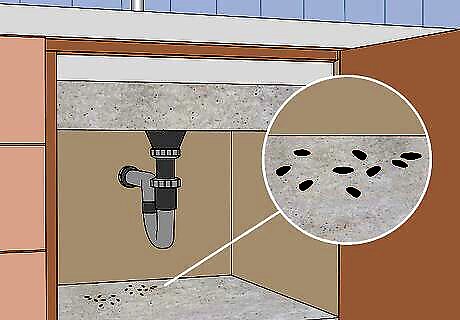
Mouse droppings Mouse poop, or droppings, is a sure sign of rodents inside the home. Mouse droppings are small and cylindrical, almost like a grain of rice. Typically dark brown or black, you’ll usually find droppings near where the mice make their nest. Mice will usually make their nests in dark, secluded places, like underneath shrubbery or in a crawlspace. Mouse droppings can carry diseases like hantavirus or listeria. If you see droppings, put on gloves and clean them up, then throw them away quickly. Disinfect the area with bleach spray to get rid of any bacteria left behind.
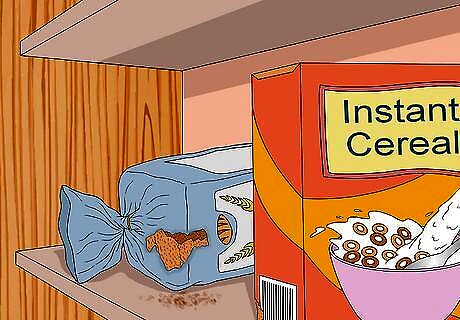
Damaged food packages When mice enter your home, they typically head straight toward a food source. If you open up your pantry and find holes in your food packages or shredded paper, you probably have mice in your home. If you do find that your food has been chewed on, throw it out right away. Mice can carry diseases, and it’s not safe to eat food that they’ve touched.

Scratching sounds Mice usually make their way through your home by going through the walls, the crawl space, or the attic. When it’s nighttime and everything is quiet, you might hear small scratching sounds—those are the noises of the mice walking around inside your home. You might even hear tiny squeaking sounds. Animals (especially dogs and cats) can pick up on these sounds better than we can. If your animals seem to be on high-alert at night, check your home for other signs of a mouse infestation.

Wood shavings or shredded paper Mice build their nests out of cozy materials, like wood shavings, paper, and straw. If you find piles of shredded material that look like they could make a nice bed for a mouse, it’s likely that you have an infestation somewhere.
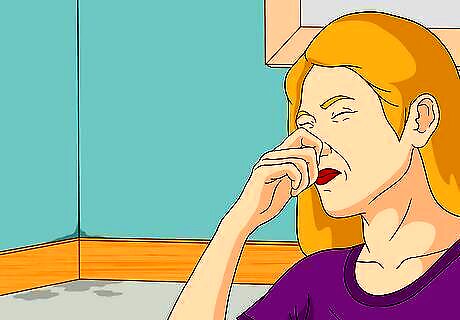
Ammonia smell When mice pee, they leave behind a scent that’s similar to ammonia (or the smell of cat pee). If you find that your home is smelling bad but you aren’t sure why, you may have a mouse problem. Mice can also smell vaguely musty or stale, especially their nests.
DIY Mouse Removal
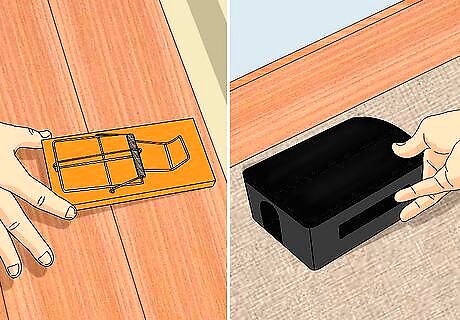
Set traps. Snap traps are a great way to catch and kill mice without using any poison. Set up multiple traps near the areas that you’ve spotted mice (or signs of mice), and check them every day. As the mice come out to explore your home, they’ll investigate the traps. If you’d like to trap a mouse without harming it, look into nonlethal traps instead. These will catch the mice and hold it in a container until you release it elsewhere.

Seal entryways with caulk. The best way to keep mice out of your home is to make sure they can’t enter in the first place. Look for any gaps in your windows, doors, and foundation to find where mice are coming in. Use caulk to seal your entryways so that mice have a harder time getting in. Also, install door sweeps in your doorway. Oftentimes, mice will come in through the door, because they can squeeze in right underneath it.
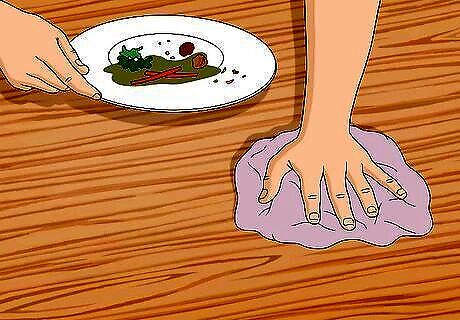
Clean up food and clutter. Unsealed food and crumbs will attract mice into your home, so be sure to clean up food and seal it away every night. Similarly, take care of clutter in your home and your yard, since mice are attracted to warm, hidden piles of leaves, grass, and clothing. Trim any large shrubs and move wood piles away from your home to deter mice.
















Comments
0 comment